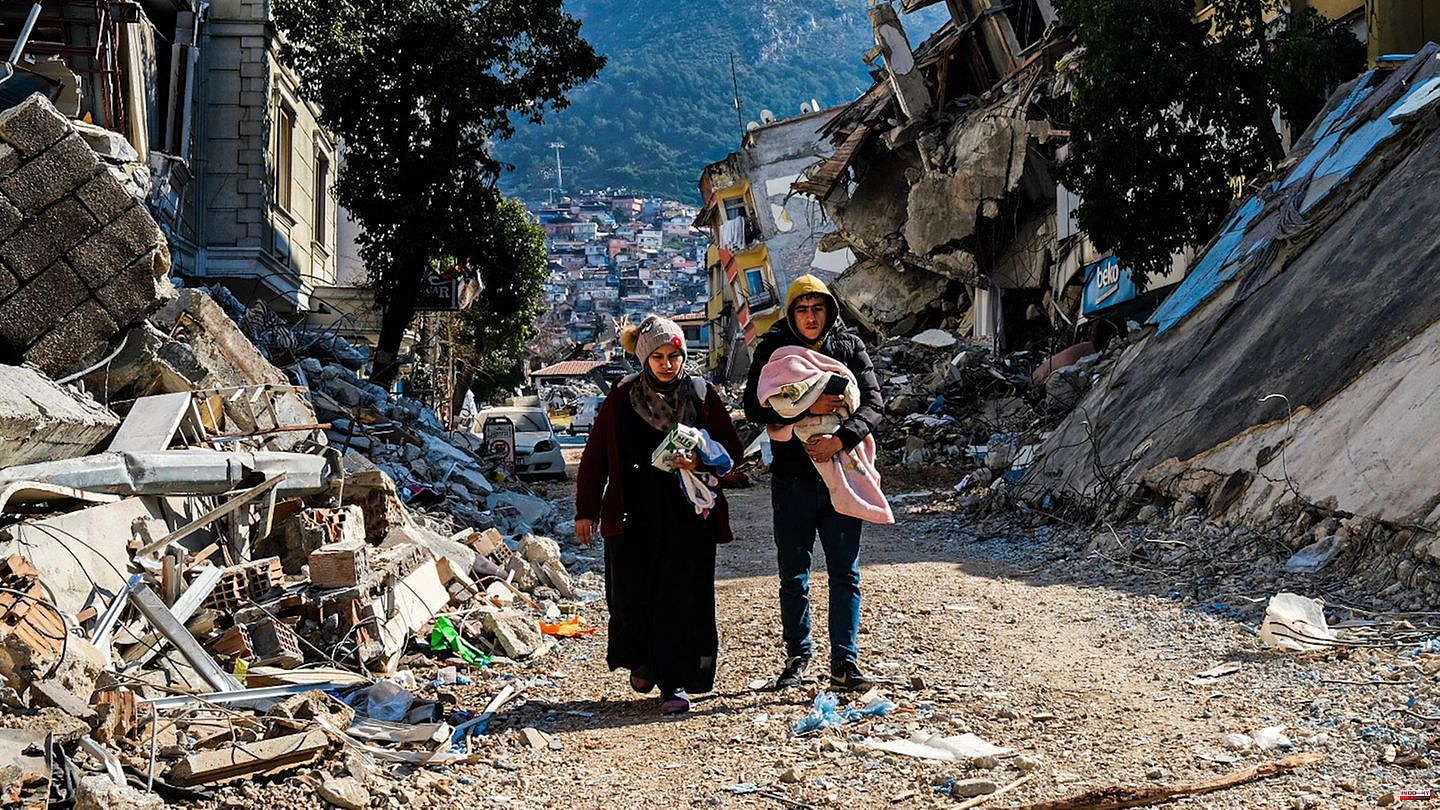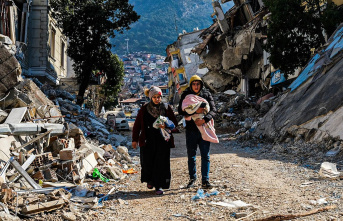Two weeks after the earthquake catastrophe in the region, another earthquake with a magnitude of 6.4 shook southeast Turkey and northern Syria. The epicenter was in the province of Hatay, as the earthquake station Kandilli in Istanbul announced on Monday. The Turkish civil protection authority Afad even spoke of two earthquakes of magnitude 6.4 and 5.8. There were at least 20 aftershocks, said Turkish Vice President Fuat Oktay on Monday evening. Dozens of injured people were reported from Turkey and Syria, where houses collapsed again like two weeks ago.
The broadcaster CNN Türk reported that people ran into the streets in a panic and that the electricity in Hatay had gone out. Three people were buried when they wanted to get things from their house. The mayor of Hatay warned that the series of earthquakes was not over yet. He called on Twitter to stay away from buildings that are in danger of collapsing. The state-run Anadolu News Agency reported that the state hospital in the coastal town of Iskenderun was being evacuated.
According to media reports, the quake was also felt in the surrounding provinces of Turkey as well as in northern Syria, Israel, Iraq and Lebanon. In several places near the city of Aleppo, houses collapsed again, said a spokeswoman for the aid organization SAMS. Among them is the small town of Djindiris, which was severely hit by the earthquake two weeks ago. Five of the organization's clinics had admitted at least 30 injured people - including a child with cardiac arrest who could be resuscitated. It was initially unclear whether houses collapsed in Turkey.
The rescue organization White Helmets announced that several towns and villages were affected in northwestern Syria. In several areas, house walls and balconies collapsed. The civil defense reported several injuries, including from falling debris. The Syrian Observatory for Human Rights reported that several people were injured by jumping out of windows or balconies or in the panicked crowd.
"Many people have left their homes and are roaming the streets in fear that more (earthquakes) will follow," including in the Syrian capital Damascus, the UN refugee agency (UNHCR) for the region said on Twitter.
Early in the morning of February 6, a 7.7-magnitude tremor shook southeastern Turkey and northern Syria, followed hours later by a second severe 7.6-magnitude tremor. In both cases, the epicenter was in the southern Turkish province of Kahramanmaras. More than 47,000 people died, including more than 41,000 in Turkey. In many provinces in Turkey, the search work for buried people has now ended.
The EU health authority ECDC warned on Monday that infectious diseases could spread in the region and result in a number of infections in the next two to four weeks. Food-borne and water-borne diseases, as well as respiratory and vaccine-preventable infections, posed a particular risk in the coming period.
Meanwhile, companies and associations in Germany promised urgently needed materials such as medicines, medical devices and other supplies worth millions on Monday, as the Federal Ministry of Health in Berlin announced after a "donations summit". The deliveries should be brought quickly to the crisis areas - by the companies themselves or in cooperation with the Turkish government and helpers.
On Tuesday, Foreign Minister Annalena Baerbock (Greens) and Interior Minister Nancy Faeser (SPD) will travel to the area affected by the earthquake two weeks ago. The ministers want to get an idea of the situation in the region around the epicenter near the city of Gaziantep, not far from the border with Syria, as a spokesman for the Federal Foreign Office announced in Berlin on Monday.
US Secretary of State Antony Blinken was stunned by the destruction in the Turkish-Syrian earthquake region in Ankara on Monday. On Sunday, together with his Turkish colleague Mevlut Cavusoglu, he got an idea of the situation in the province of Hatay, which was particularly hard hit by the earthquake.
During a renewed visit to Hatay on Monday, Turkish Prime Minister Recep Tayyip Erdogan announced that he would quickly rebuild the province's cities. They want to revive Hatay "in all its colors," he said. Erdogan had previously met the US Secretary of State at Ankara Airport.












